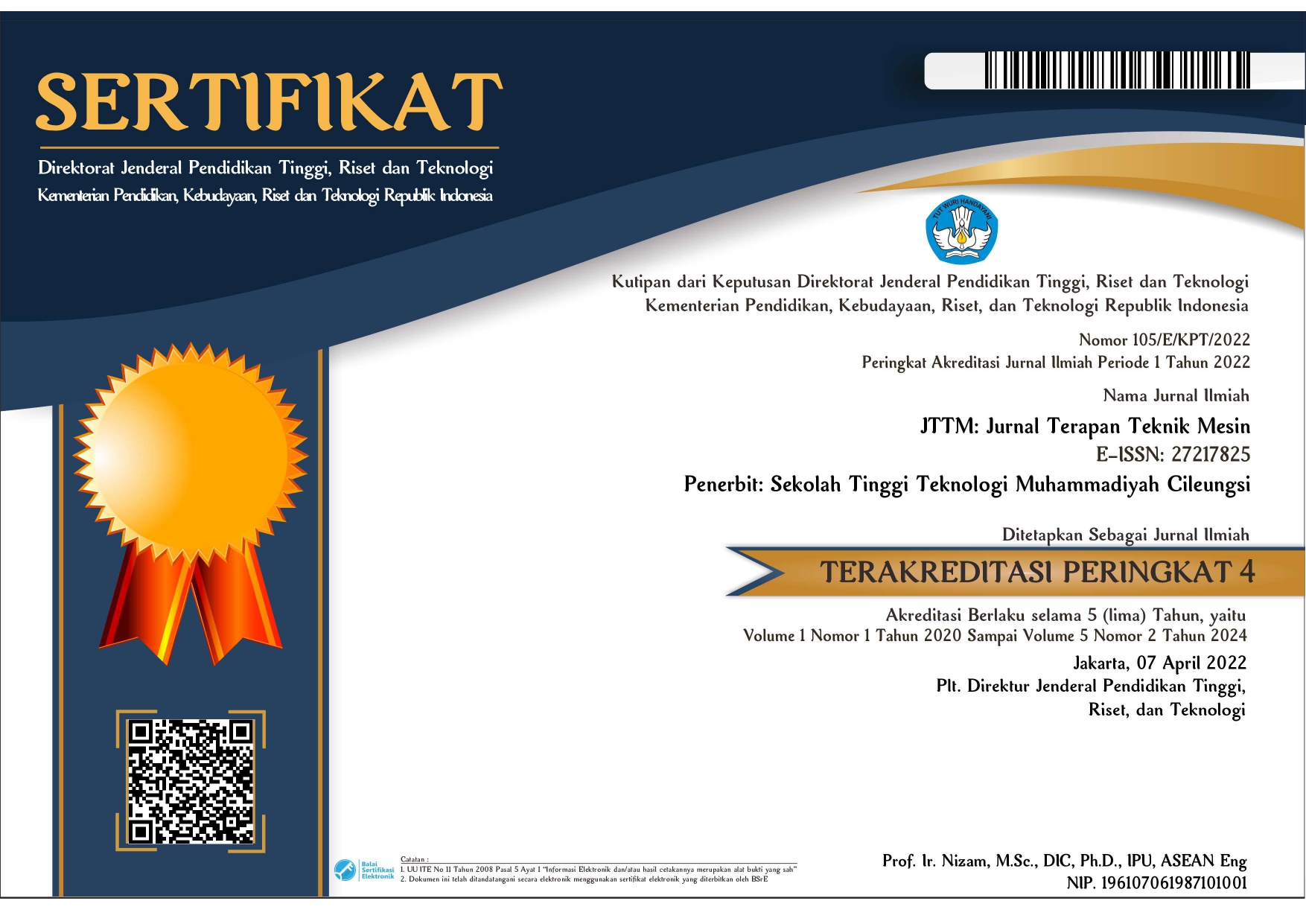Application of DFMA in lock band service modification of ATB-I3 building machine
Abstract
The locking mechanism on the band service, known as the lock band service, is used to move materials to the tire-making machine. A building machine is a device that assembles components into partially finished or green tires. The components are tread, which acts as the tire tread, band/ply, which are fabric sheets coated in rubber, and bead wire. Subsequently, the materials are put together on the drum-mounted construction machine. The ATB-I3 machine has the largest downtime owing to a band service fault, with 840 minutes in January 2024, and is the problem with the highest downtime in section A2. The cause of the excessive downtime in the band service is an issue with the band service lock system, namely the pneumatic movement lock mechanism on the band service component. As a result, adjustments must be made by altering the lock band service's design. After that, a weld joint strength analysis is performed to make sure the modification can be safely put into practice. To obtain the optimal modification design, the DFMA method is employed. With the use of the DFMA approach, the updated design—which had a design efficiency value of 4.23% to 4.31% before—was improved. The welding connection in the updated design is safe to use since, according to the results of the welding connection calculation, the lock band service holder has a maximum welding load of 294,645.08 N whereas the actual welding load is 147,928 N. The reduction in service band downtime was tested with this improvement. Following the implementation of the update in March 2024, the amount of downtime resulting from damage to the band service dropped by 445 minutes, or 52.97%, to 395 minutes
Copyright (c) 2024 Doni Revaldo, Subekti Subekti

This work is licensed under a Creative Commons Attribution-NonCommercial 4.0 International License.











